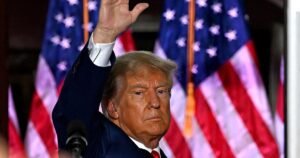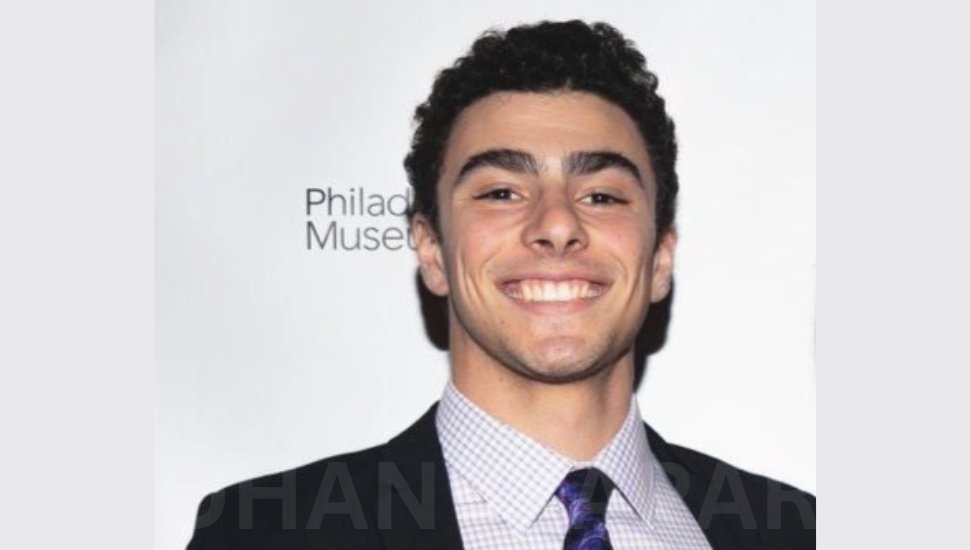A significant victory for Attorney General Letitia James, who claims that former President Donald J. Trump overpriced his properties by as much as $2.2 billion, has been reached in a lawsuit that might go to trial next week.

Tuesday’s decision by a New York judge declared that Donald J. Trump had engaged in ongoing fraud by exaggerating the worth of his assets, depriving the former president of ownership of some of his most recognisable New York properties.
Attorney General Letitia James has won a significant legal battle against Mr. Trump after the unexpected ruling by Justice Arthur F. Engoron, which essentially declared that there was no need for a trial to establish that he had falsely obtained advantageous terms on loans and insurance contracts.
In a trial that could start as early as Monday, Ms. James believes that Mr. Trump overstated the worth of his properties by up to $2.2 billion. She is asking for a fine of roughly $250 million.
The yearly financial statements that Mr. Trump filed with banks and insurance providers, according to Judge Engoron, “clearly contain fraudulent valuations that defendants used in business.”
In a succinct statement, Ms. James stated, “We look forward to presenting the remainder of our case at trial.”
Christopher M. Kise, Mr. Trump’s attorney, said that the ruling was “outrageous” and “completely disconnected from the facts and governing law,” and that he would probably file an appeal. According to him, the judge disregarded “basic legal, accounting, and business principles” as well as a previous decision from an appeals court.
For his part, Mr. Trump labelled Justice Engoron as “deranged” and mentioned that he was a Democrat.
Justice Engoron’s decision granted one of the harshest penalties Ms. James requested: the revocation of the business licences allowing some of Mr. Trump’s New York properties to remain open for business. This move could have significant effects on the Trump family business, even though the trial will determine the exact penalty.
His authority over a family estate in Westchester County and a prominent commercial property at 40 Wall Street in Lower Manhattan may be terminated by the ruling. It is possible that Mr. Trump may also lose authority over his other properties in New York, such as his golf club in Westchester and Trump Tower in Midtown Manhattan.
Although Mr. Trump’s corporation, which consists of hundreds of organisations, will not be dissolved by the order, the judgement may have a significant effect on the company’s operations in New York. If an appeals court does not overturn Justice Engoron’s ruling, it may shut down the organisation that employs hundreds of people in New York, thereby bankrupting the business.
According to Mr. Kise, “the decision seeks to seize control of private property and nationalise one of the most successful corporate empires in the United States.”
Concurrency also calls for dissolving the Trump Organisation L.L.C. That organisation, a mere vehicle for the expansive company’s brand, is comparatively insignificant. However, it has been closely associated with Mr. Trump since his early years as a developer who enjoyed sensational headlines and moved his father’s suburban company into the centre of Manhattan.
The four criminal indictments of the former president, which have nothing to do with Ms. James’s accusations, cast a shadow over her civil case; but, should the judge’s ruling survive, it will be the first sanction resulting from a government probe into Mr. Trump.
The topics that will be considered at trial are narrowed by Justice Engoron’s ruling, which found that the main thrust of Ms. James’s case was legitimate. It is a significant setback for Mr. Trump, whose attorneys hoped to convince the judge to dismiss numerous allegations against the former president.
Judge Engoron spoke harshly about Mr. Trump’s defences in his order, claiming that the former president and the other defendants—including his corporation, his two adult sons, and others—ignored truth when it suited their commercial interests. “In the world of the defendants, restricted land is worth the same as unrestricted land; restrictions can vanish into thin air; rent-regulated apartments are worth the same as unregulated apartments,” the author said.
He went on, “That is not the real world; that is a fantasy world.”
In addition, the judge imposed penalties on Mr. Trump’s attorneys for presenting claims that he had already dismissed. Noting that he had already cautioned them that the arguments in question verged on frivolous, he ordered each to pay $7,500.
It was “indefensible” to repeat them, according to Justice Engoron.
In the unlikely event that Mr. Trump is unable to overturn the decision, he still has the option to postpone the trial or even destroy the case. Judge Engoron has been sued by Mr. Trump, and this week an appeals court is anticipated to make a decision regarding his complaint. But Mr. Trump will have to defend the remaining portion of the case in court if the appeals court goes against him.
For years, Mr. Trump has served as an advocate for his own brand and the worth of his properties, acting as his most devoted salesman. For a long time, prosecutors have been intrigued by the notion that Mr. Trump’s exaggerations could be criminal in nature. In fact, the Manhattan district attorney’s office nearly brought an indictment against Mr. Trump on the grounds that he had exaggerated their value.
Alvin L. Bragg, the district attorney in place now, first decided not to press the case but subsequently brought an indictment against the former president for allegedly giving hush money to a porn star.
March 2019 saw the beginning of Ms. James’ investigation into Mr. Trump, and in September of last year, she filed a lawsuit against him, charging him with “staggering” deception over the value of his real estate holdings, which included hotels, golf courses, and apartment buildings. In her pleadings, she accused Mr. Trump of multiplying the represented worth of his major properties, Mar-a-Lago and Trump Tower, by utilising petty, dishonest techniques.
She stated that Mr. Trump overestimated the size of the triplex apartment in Trump Tower, where he stayed for decades, claiming it was 30,000 feet instead of roughly 11,000, in one notable instance. Judge Engoron pounced on that, stating that the attorneys for Mr. Trump had “absurdly” stated that square footage was determined subjectively and that good-faith measures may differ by 10 to 20 percent, but not by 200 percent.
He added, “A real estate developer sizing up his own living space of decades can only consider fraud with a discrepancy of this order of magnitude.”
In an attempt to dismiss numerous allegations against him, Mr. Trump’s attorneys had petitioned Judge Engoron for a so-called summary judgement, which would have granted them a victory prior to trial on the basis of undeniable facts. They mainly relied on a June decision by an appeals court raising the possibility that some of the allegations made against Mr. Trump might be too old to go to trial.
Judge Engoron granted Ms. James’s comparable request for partial summary judgement but dismissed Mr. Trump’s, viewing the appeals court decision as largely immaterial to the case.
The Republican Mr. Trump has denied any wrongdoing and charged the Democrat Ms. James with political persecution. The banks who lent Mr. Trump money were not exactly victims, as his attorneys have pointed out; rather, they made money. They also contended that property valuation is not always a precise science but rather a subjective art.
“Those who were genuinely involved in the loan transactions and testified that there was no fraud, no deceiving, and the deals were all highly profitable were ignored by the court,” Mr. Kise stated in his statement. “Zero evidence of any default, breach, late payment, or any complaint of harm,” he continued.
However, those are some of the same claims that Judge Engoron, who has argued with Mr. Trump’s attorneys at every stage, made when he issued the sanctions.
The judge summarised their arguments as he saw them in his writing, saying, “Essentially, the court should not believe its own eyes.” The documents did not express what they claimed to say, that there is no such thing as “objective” worth.
He included a quote from Chico Marx’s film “Duck Soup” as a footnote, saying, “Well, who ya gonna believe, me or your own eyes?”







